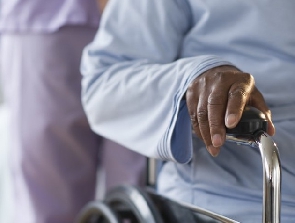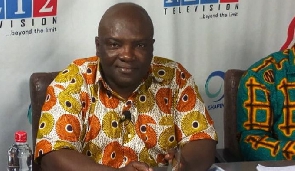Health News of Thursday, 16 November 2023
Source: Simon Badu, Contributor
Nurturing emotional and mental health after stroke
A stroke can have a profound impact on an individual's life, impacting not just their physical health but also their emotional and mental state of mind. Recognizing and addressing the emotional and mental health components of stroke rehabilitation is critical for doctors.
For stroke survivors to receive comprehensive care and have improved results, it is imperative to comprehend the connections between physical and mental health.
Being a stroke survivor can be a terrible event that elicits a variety of emotions, including fear, worry, grief, and frustration.
A stroke's abrupt and frequently unexpected character can leave victims feeling
vulnerable and bereaved. In addition to the survivor, family members, and caregivers may also feel stressed and under emotional strain as a result of the emotional impact.
One common emotional aftermath of a stroke is depression. It could be brought on by the physical changes the stroke survivor goes through, including reduced speech or movement, as well as the psychological difficulties of readjusting to life after the stroke. Another common problem is anxiety, which is frequently stoked by worries about the future, the possibility of having another stroke, or the difficulties of rehabilitation.
Healthcare professionals must watch out for indicators of mental distress in stroke survivors. It's important to pay attention to mood swings, social disengagement, sleep issues, and enduring powerlessness or hopelessness. Early detection and intervention can be facilitated by the use of screening instruments and honest patient communication.
Following a stroke, rehabilitation is essential for both emotional and physical healing. In addition to aiding in the restoration of bodily function, physiotherapy and occupational therapy also increase confidence and self-worth. Stroke survivors might greatly benefit from meaningful activities and goal-
setting when it comes to their mental health.
Emotional and mental well-being depends on maintaining social ties. One important source of support for stroke survivors is to encourage them to maintain their relationships with friends, family, and support groups. Reducing feelings of loneliness and promoting a more optimistic perspective on the healing process can be achieved by feeling heard and encouraged.
When there is a greater degree of emotional suffering, psychotherapy and counseling might be helpful interventions. Individuals can overcome the emotional obstacles connected to stroke rehabilitation, confront negative thought patterns, and create coping mechanisms with the aid of cognitive-behavioral therapy (CBT) and other therapeutic techniques.
Medication could be required in certain situations to treat anxiety or depression symptoms. A comprehensive approach to the patient's care, covering both physical and mental health requirements, can be ensured by working in conjunction with mental health specialists, such as psychologists or
psychiatrists.
In summary, as healthcare professionals, we have a responsibility to care for our patients' emotional and mental health in addition to the physical effects of a stroke. Stroke survivors can benefit from a more resilient and positive recovery journey if we acknowledge the emotional impact of stroke, implement
comprehensive rehabilitation programs, foster social ties and work in conjunction with mental health professionals.
A multidisciplinary approach, empathy, and comprehension are crucial for promoting holistic health and raising the general standard of living for stroke victims.











